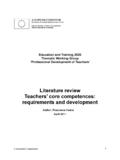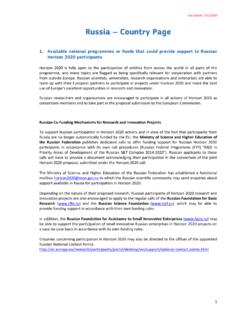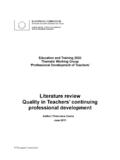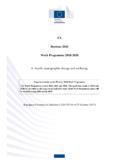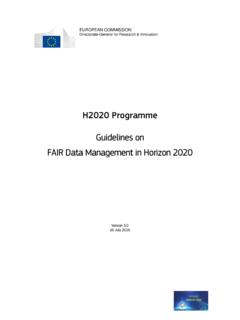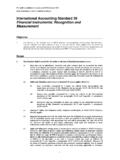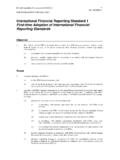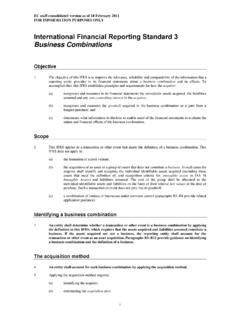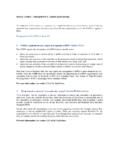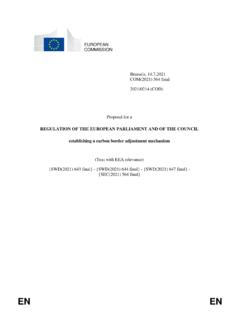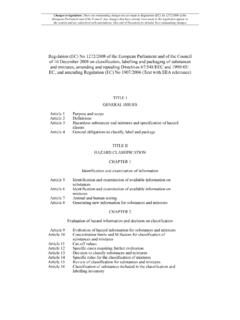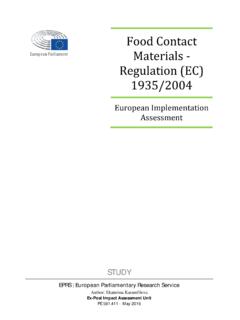Transcription of REGULATION OF THE EUROPEAN PARLIAMENT AND OF …
1 EN EN EUROPEAN commission Brussels, COM(2021) 223 final 2021/0114 (COD) Proposal for a REGULATION OF THE EUROPEAN PARLIAMENT AND OF THE COUNCIL on foreign subsidies distorting the internal market {SWD(2021) 99 final} - {SWD(2021) 100 final} - {SEC(2021) 182 final} EN 1 EN EXPLANATORY MEMORANDUM 1. CONTEXT OF THE PROPOSAL Reasons for and objectives of the proposal The EUROPEAN Union (EU) is closely intertwined with the global economy. With trade in goods and services worth EUR 5 984 billion in 20191, it accounts for of overall global trade. As a result, trade accounts for almost 35% of the EU s gross domestic product (GDP), with 35 million jobs in the EU dependent on exports.
2 The flow of products, services and capital into and out of the EU contribute to its growth by enhancing competitiveness, creating jobs, stimulating innovation and opening up new markets2. In 2017 the EU28 was the destination for a third of the world s investment stocks and home to roughly 100 000 companies owned by foreign entities3. Foreign direct investment (FDI) is a welcome source of employment (16 million jobs4), growth and competitiveness. A strong, open and competitive single market enables both EUROPEAN and foreign companies to compete on merit in as far as a level playing field in the internal market is ensured. Accordingly, on 10 March 2020 the commission presented a new industrial strategy for Europe5, which mapped out a path whereby EU industry could lead the green and digital transitions on the basis of competition, open markets, world-leading research and technologies, and a strong single market.
3 The EU is pursuing a model of open strategic autonomy6 by shaping the system of global economic governance and developing mutually beneficial bilateral relations, while protecting its internal market from unfair and abusive practices. The Communication on the trade policy review adopted on 18 February 2021 set the direction for an open, sustainable and assertive trade policy, building on openness as a strategic choice while also being equipped with the tools to combat unfair trading In recent years, foreign subsidies appear in some instances to have had a distortive impact on EU s internal market, creating an uneven playing field for competition.
4 While there is still a general lack of reliable data on subsidies granted by third countries, there is a growing 1 DG Trade Statistical Guide, August 2020, excluding intra-EU trade; 2 Report from the commission on the implementation of the trade policy strategy Trade for all: delivering a progressive trade policy to harness globalisation (COM(2017) 491 final). 3 Eurostat, Foreign AffiliaTes Statistics (FATS), Foreign control of enterprises by economic activity and a selection of controlling countries (from 2008 onwards) [fats_g1a_08]. The 100 000 figure includes the United Kingdom as part of the EU-28.
5 Preliminary data shows that this figure is not likely to change significantly for the EU-27. In 2018, an estimated 84 000 enterprises in the EU-27 were owned by foreign entities (excluding the UK), while in 2015-2017 there were around 18 000 UK-owned enterprises in other EU-27 countries. 4 commission staff working document on Foreign direct investment in the EU (SWD(2019) 108 final), following up on the commission Communication Welcoming foreign direct investment while protecting essential interests (13 September 2017). 5 commission Communication, A new industrial strategy for Europe (COM(2020) 102 final), as updated in 2021.
6 See also the commission Communication, The EUROPEAN economic and financial system: fostering openness, strength and resilience (COM(2021) 32). 6 commission Communication, Europe s moment: repair and prepare for the next generation (COM(2020) 456 final). See also the commission Communication, The EUROPEAN economic and financial system: fostering openness, strength and resilience (COM(2021) 32). 7 commission Communication, Trade Policy Review An Open, Sustainable and Assertive Trade Policy (COM(2021) 66 final). EN 2 EN number of instances in which foreign subsidies seem to have facilitated the acquisition of EU undertakings, influenced investment decisions, distorted trade in services or otherwise influenced the behaviour of their beneficiaries in the EU market, to the detriment of fair competition8.
7 In this context, foreign subsidies can take different forms, zero-interest loans, unlimited State guarantees, tax exemptions or reductions in respect of foreign investments or trade or dedicated State funding. In many cases, they would be problematic if granted by EU Member States and assessed under EU State aid rules. Since 2017, the EU has been actively engaged in trilateral talks with the United States and Japan to improve multilateral cooperation in a number of key areas. In June 2018, the EUROPEAN Council gave the commission a mandate to pursue WTO modernisation in pursuit of the objectives of making the WTO more relevant and adaptive to a changing world, and strengthening the WTO s effectiveness 9.
8 In January 202010, senior trade representatives of the EU, US and Japan agreed on the need to strengthen World Trade Organization (WTO) rules on industrial subsidies. In this context, the EU intends to start work on developing WTO rules to address a range of competitive distortions due to state intervention in the economy, including industrial subsidies, as outlined in the Annex to the Communication on the Trade Policy Considering the challenge to find a multilateral solution to subsidies within a reasonable timeframe, the commission committed (as part of the new industrial strategy for Europe) to explore how best to strengthen the EU s anti-subsidy mechanisms and tools12.
9 On 17 June 2020, the commission adopted a white paper on foreign subsidies13 to explore the issue, launch a public debate and propose possible solutions. The white paper and, in more detail, Section 2 of the impact assessment report accompanying the present proposal describe a legislative gap in EU competition, trade and public procurement rules, which effectively prevents the EU from taking action when foreign subsidies cause distortions in the internal market including by financing concentrations or procurement bids. The white paper notes that, while the granting of support by Member State authorities is subject to EU State aid control, no comparable regime is in place for support granted by non-EU countries.
10 This puts undertakings that engage in an economic activity in the EU without subsidies at a disadvantage vis- -vis beneficiaries of foreign subsidies. The white paper further identified problems linked to access to EU funding by operators receiving foreign subsidies, which could distort the competition for EU funds. The impact assessment accompanying this proposal notes that any Union measures addressing the 8 A recent report by the EUROPEAN Court of Auditors finds that certain subsidies granted by the Chinese state would constitute State aid if granted by an EU Member State, and notes that this difference in treatment can distort competition in the EU s internal market ; EUROPEAN Court of Auditors, The EU s response to China s state-driven investment strategy , Review 03 (2020); 9 EUROPEAN commission , Concept paper: WTO modernisation (September 2018).
